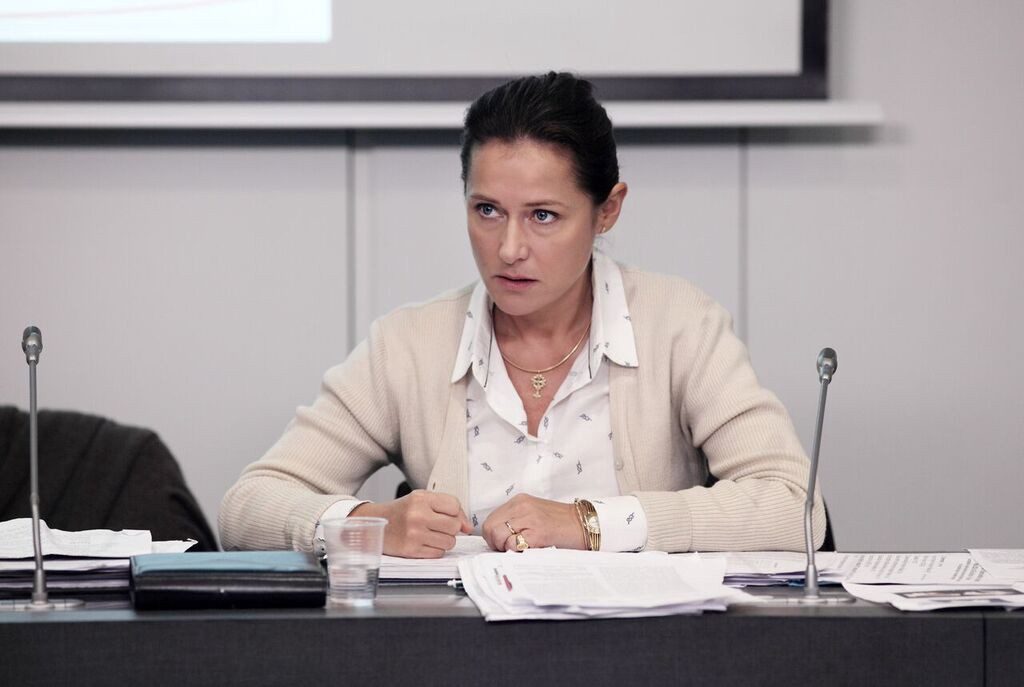Emmanuelle Bercot’s previous directing credits include “Clément,” “Backstage,” “On My Way,” and “Standing Tall.” Bercot’s films have earned her many awards and honors, especially at Cannes Film Festival, and in 2015, “Standing Tall” was selected to open the fest.
“150 Milligrams” will premiere at the 2016 Toronto International Film Festival on September 13.
Note: Emmanuelle Bercot’s responses were translated from their original French.
W&H: Describe the film for us in your own words.
EB: Following a huge French sanitarian scandal, the film [depicts] the battle of a woman doctor, against everyone else, to transform the truth into triumph.
W&H: What drew you to this story?
EB: It was Haut et Court’s production team that asked me to adapt Irène Frachon’s non-fiction book. I was seduced by Irène Frachon’s extraordinary, singular, and fanciful personality, and also her strength, courage, and “joie de vivre.” She’s a colorful person, who I felt could become a beautiful fictional character. It was also the chance for me to flirt with a film style that was different from everything I did [up to that point.]
W&H: What do you want people to think about when they are leaving the theater?
EB: If they’re not aware of the issue, I would like them to be revolted and shocked by the power of the pharmaceutical laboratories. I would also love them to be appreciative and affected by the prodigious courage and hard work of this woman who fought for impersonal reasons.
Everybody should ask themselves about our [habit of waiting] until somebody else solves problems — [this] disengagement is [dangerous.]
It’s also a movie about a collective adventure, since Irène was helped by exceptional people during her battle. I would like the spectator to cheer for that team spirit, and find the pleasure and optimism in that solidarity.
W&H: What was the biggest challenge in making the film?
EB: To make a two-hour film about an extremely complex story which lasted five years, and to make it accessible to the public. Directing a foreign actor, and adapting myself to the acting direction of someone who doesn’t work the same way as French actors, was also challenging. This was also my first genre film, with all the rules that surround it.
W&H: How did you get your film funded? Share some insights into how you got the film made.
EB: The movie’s financial partners are all from Haut et Court and have been there for me on my past projects. The financing comes from France 2 Cinéma co-producers, contributions from TV channels (Canal +, Ciné +, France 2, etc.), public financing (Région Bretagne, tax credits, etc.), private investors, and advances from the international seller Wild Bunch, the France distributor Haut et Court, and the video editor FTD.
W&H: What does it mean for you to have your film play at TIFF?
EB: I was at TIFF 12 years ago for my second movie, “Backstage,” and have some very good memories of it.
W&H: What’s the best and worst advice you’ve received?
EB: The best advice I got was from Catherine Deneuve, who told me that Sidse Babett Knudsen, who I didn’t know, was the perfect fit to play Irène’s character. Never would I have thought about that.
I haven’t had bad advice.
W&H: What advice do you have for other female directors?
EB: To stop believing that their gender is an obstacle to making films.
W&H: Name your favorite woman-directed film and why.
EB: There’s two: Jane Campion’s “The Piano” and Sofia Coppola’s “Lost in Translation.” Those two films achieve perfection on every level and I firmly believe that they are absolute masterpieces.
W&H: Have you seen opportunities for women filmmakers increase over the last year due to the increased attention paid to the issue? If someone asked you what you thought needed to be done to get women more opportunities to direct, what would be your answer?
EB: I can’t answer that question since I’m not at the right place to do so. I’m a French filmmaker, and in France every door is open for women filmmakers, and there is a very strong emergence of women filmmakers.
But I know it is very different in other countries. Never [having been] confronted at my job with obstacles due to the fact that I’m a woman, I wouldn’t know how to draw conclusions on what could be improved.






